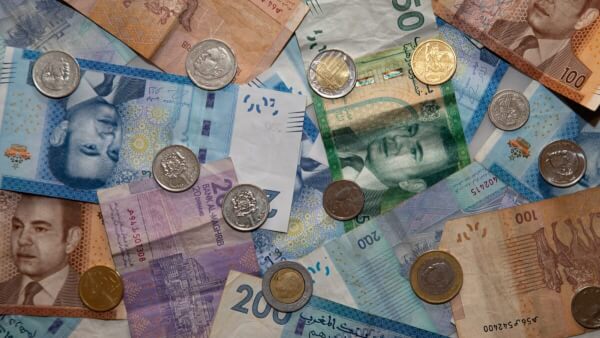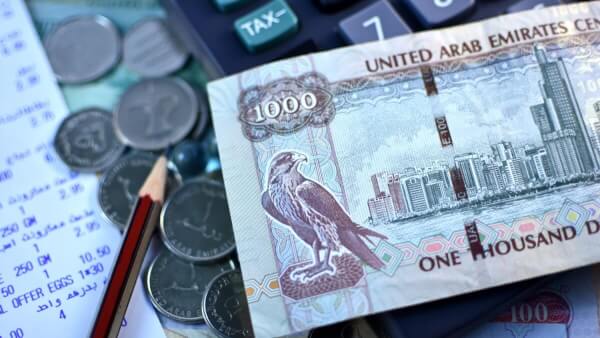Starling Bank limits: transfers, withdrawal, spending
Read our guide to Starling Bank limits on UK and international transfers, ATM withdrawals and card spending for personal customers.

Malaysia ranks as one of the top 25 places in the world for expats to live, according to HSBC’s 2021 Global Explorer Survey.¹
The Southeast Asian nation has a heady mix of growing economic segments, friendly people, and an attractive climate. But if you’re going there to work, study or retire from the UK, then you’re going to need a local bank account to get you started.
In this guide, we’ll show you exactly how to open one in Malaysia. We’ll cover everything from fees and charges to the best banks for non-residents from the UK, plus the documents you’ll need to open your new account.
Also, there are alternatives to a bank account, like the Wise account from Wise, a money services provider. It’s a travel-friendly, international account that lets you send, spend and receive multiple currencies worldwide (including in Malaysia) all in one place.
Please see the Terms of Use for your region.
Application requirements can vary from bank to bank. But generally speaking, you’ll need to provide the following to open an account in Malaysia:²
Many expats arriving in Malaysia take advantage of the Malaysia My Second Home (MM2H) program. This is a government scheme granting a 10 year visa³ to anyone from a country that has diplomatic relations with Malaysia - provided they meet the criteria.
Here are the main conditions for applying for a MM2H visa:³
And if you’re retiring to Malaysia, you need to receive a pension of at least RM10,000 per month.³
If you’re part of the MM2H scheme, you can use your approval and visa documents to apply for your new bank account.
It is possible to open a Malaysian bank account as a non-resident. However, it’s likely that you’ll need to provide more documentation than a resident or Malaysian national.
The paperwork can vary from bank to bank but most will require evidence of your work or student visa, along with your resident or MM2H permit.²
Here’s how to approach opening an account in Malaysia:
Research the eligibility and requirements for opening an account with a specific Malaysian bank
Gather the documents listed above and make necessary copies
Visit a local bank branch in person for identity verification and application
Choose the type of account you want to open
Wait for the approval
You may need to present additional documents requested by the bank
Get the account details and access your account
It can be easier to open a bank account in Malaysia if you choose an international bank, such as HSBC, Standard Chartered Bank or Citibank. These banks have a presence in both the UK and Malaysia, and can help expats to open accounts and access other banking services.
In theory, it is possible to open a Malaysian bank account online, but it can be tricky. There can be different processes for new and existing customers, and for residents and non-residents, so it’s best to contact the bank directly for the exact account opening process.
At Maybank for example, you can start an application online for certain accounts by completing an online application form. However, you still need to visit a branch in person to provide your supporting documents.⁴
In some cases, you’ll need to make a phone or in-person appointment with the bank to start the process of opening your account.
Also, with some international banks, you may start the application process before arriving in Malaysia. For example, HSBC can help you open a bank account in Malaysia before you arrive. You can start your application and provide your documents at your local HSBC branch or International Banking Center (IBC) here in the UK.²

Malaysia has a strong network of both local and international banks. Opening an account is usually no more difficult than visiting a branch with the right paperwork, and if you choose an international bank you could even do it before you arrive.
Remember that not all accounts will be available to all applicants. Some banks stipulate that you must be a permanent resident or Malaysian national in order to apply - so it’s worth checking your eligibility in advance.
Let’s take a look at a few of the major banks in Malaysia you can choose from.
And remember, there are alternatives to a bank account for managing your money in Malaysia or internationally. Consider checking out the Wise account which allows you to send and receive money in multiple currencies (including in British pounds and Malaysian ringgits) for low fees and the mid-market exchange rate.
You can also get a Wise card to spend like a local once you arrive in Malaysia.
Learn more about the Wise account 💰
Please see the Terms of Use for your region or visit Wise fees & pricing for the most up-to-date information on pricing and fees.
Maybank (also known as Malayan Banking Berhad) is one of the largest Malaysia’s retail banks, and has over 2,200 locations in 20 countries.⁵
Maybank offers a range of accounts, including a basic checking account, personal current account,⁶ and even multi-currency accounts.⁷ Most of the bank’s accounts are available to foreigners but it’s always a good idea to check the eligibility by contacting the bank.
Maybank has all the modern banking features, including a mobile banking app.⁸
While not one of the largest in the country, HSBC Bank Malaysia Berhad has a global presence and is also located in the UK. This means it will accept applications from non-residents, and can help you open your Malaysian account before you arrive in the country.
HSBC has multiple branches throughout the country, and offers a range of accounts and services. This includes Advance and Premier accounts,² but one of the best solutions for expats is the HSBC Everyday Global Account.
This is an all-in-one multi-currency account, which comes with an international debit card, instant online transfers between global HSBC accounts and many other features and rewards.²
With over 22 million customers and branches in Singapore, Indonesia and Thailand, CIMB Bank is the fifth largest banking group in ASEAN.⁹
On offer at CIMB Bank is a wide choice of current and savings accounts, including a Basic Current Account, Regular Current Account and interest-earning Preferred Current Account.¹⁰ Online banking is possible with nearly all accounts.
The best account for foreigners is the Regular Current Account which is a non-interest account. You can open this account using your passport and you need to pay in RM1,000 to set up the account.¹¹
Public Bank Berhad (PBE) is a large Malaysian bank operating across the region. They have a wide range of accounts on offer, including current accounts, savings accounts, and foreign currency accounts.¹²
For non-residents, PBE offers a PLUS Current Account, a non-interest bearing everyday account. You need to make a RM3,000 deposit to set this account up.¹²
PBE offers easy account management through branch, ATM or online banking.¹²
It’s important to read the terms and conditions carefully before you choose a bank account, especially when it comes to banking fees and charges. The fees can quickly ramp up and end up taking a significant chunk out of your budget.
Let’s look at some of the common fees and requirements you can find with Malaysian accounts.
Many current accounts in Malaysia come with a half-yearly service charge. This can vary depending on the balance in the account. For example, at CIMB, you’ll pay around RM10 for an average credit balance of less than RM1,000. But if you can keep your balance above this amount, you can avoid the fee.¹⁰
To open a bank account in Malaysia, you’ll often need to make a minimum deposit. This is usually around RM1,000¹³ to RM3,000,¹² but for some basic accounts it can be as low as RM500¹³. You may also need to keep this amount in your bank account to avoid or reduce regular service fees.
Many current accounts in Malaysia come with a debit card. Depending on the account, the cards can be free or come with an annual fee; although with the former, you may have some significant restrictions on card usage.¹⁴ For example, a bank card’s annual fee with RHB Basic Current Account is free-of-charge or RM8, depending on which option you choose.¹⁴
Most banks in Malaysia won’t charge you to use their own ATMs and have waived charges with certain ATM networks, like withdrawals from MEPS Shared ATM Network.¹⁵ However, other banks, like Maybank, ask a fee for a withdrawal using the MEPS Shared ATM.¹⁶ You may also pay a fee to use another bank’s ATM.
Banks like RHB give you free ATM withdrawals when you pay an annual debit card fee, or you can swerve the fee and get a limited number of free withdrawals per month.¹⁷
If you close your account within a certain time period, there may be a fee to pay. For example, you’ll pay a fee of RM20 at CIMB if you close your account within 3 months of opening it.¹⁰
Cheques are still commonly used in Malaysia, although they may be on the decline in other countries. If you do use cheques, there is likely to be a processing fee of around RM0.50 per cheque.¹⁵
A bank account isn’t the only way to manage your finances abroad like in Malaysia. Many expats, international students and digital nomads use Wise instead.
Wise is a money services provider, offering a multi-currency account, international money transfer services and a debit card.
Open a Wise account online and you can manage your money in multiple currencies (including in British pounds and Malaysian ringgits) and get a Wise card to spend internationally at the mid-market exchange rate.
Please see the Terms of Use for your region or visit Wise fees & pricing for the most up-to-date information on pricing and fees.
It can sometimes be a little tricky to open a bank account in Malaysia as an expat, as you’ll need some extra paperwork and may need to visit a branch in person.
But after reading this guide, you should be all set to compare banks, get your documents in order and open your new account in Malaysia. Good luck!
Sources used:
Sources last checked on date: 27-Sep-2023
*Please see terms of use and product availability for your region or visit Wise fees and pricing for the most up to date pricing and fee information.
This publication is provided for general information purposes and does not constitute legal, tax or other professional advice from Wise Payments Limited or its subsidiaries and its affiliates, and it is not intended as a substitute for obtaining advice from a financial advisor or any other professional.
We make no representations, warranties or guarantees, whether expressed or implied, that the content in the publication is accurate, complete or up to date.

Read our guide to Starling Bank limits on UK and international transfers, ATM withdrawals and card spending for personal customers.

Find out how to open a Starling Bank account online in the UK with our comprehensive guide, covering eligibility, requirements and how to get started.

A list of the top 10 banks in Morocco, including CIH Bank, Attijariwafa Bank, Bank of Africa and Al Barid Bank.

A list of the top 10 banks in Dubai, including Emirates NBD, First Abu Dhabi Bank, Mashreq Bank, RAKBANK and HSBC UAE.

Looking to open a new bank account? Read our Halifax Reward current account review and find out everything you need to know.

Read our comprehensive guide to the best USD accounts in the UK, including features, fees and everything else you need to know.